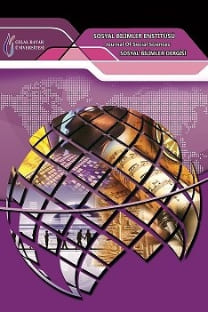RYLE DESCARTES’A KARŞI
Dinlerin en önemli kavramı tüm evreni yaratmış, her şeye gücü yeten, her şeyi bilen, esirgeyen bir varlık olan Tanrı fikridir. Tanrı'nın varlığı ile ilgili sorular belki de sorulup yanıtlanmaya çalışılacak en önemli sorulardır. Tanrı varsa, o zaman bizim bu gerçeği bilmeye çabalamamız hatta Tanrı ve planı hakkında olabildiğince bir şeyler öğrenmemiz son derece önemlidir. Tanrı varsa, dünya tesadüfen yaratılmamıştır; sırf şans eseri veya zorunlulukla da var olmamıştır; tersine, rasyonel ve duygulu varlıklar için tasarlanmış bir evdir. Bir Tanrı varsa, bu gerçeği keşfetmek için elimizden gelen her şeyi yapmalıyız, buna bu keşfi yapmak için aklımızı işe koşmak ve böylesi keşif iddialarının geçerliliğini sınamak için yine aklımızı bir araç olarak kullanmak da dahil. Peki, argümanlarla Tanrının varlığı ispatlanabilir mi ya da böyle bir şey ihtimal dahilinde mi? Aklın Tanrının varlığını ispatlayabileceğine inananlar ile buna inanmayanlar arasındaki tartışma ya da kanıtlama Aziz Anselmus tarafından Tanrının varlığına dair ilk kez ortaya konuğundan beri filozofları şaşırtmaya ve büyülemeye halen devam ediyor. Ontolojik Kanıtlama iki nedenden dolayı önemlidir: birincileyin, Tanrı'nın varlığına dair a priori bir kanıt olduğunu iddia ediyor ve ikincileyin varoluşun bir yüklem ya da nitelik olup olmadığını felsefe problemlerinin odak noktasına getiriyor. Bu bağlamda, bu çalışmada güdülen amaç, ontolojik kanıtlamayı geçerli olarak kabul eden René Descartes ile kanıtlamayı geçersiz diye yadsıyan Gilbert Ryle’ın bu konudaki görüşlerini etraflıca irdelemektir.
Ryle Versus Descartes
The key notion of most religions is the idea of a God, an all-powerfull, benevolent and providential being, who created the universe and all therein. Questions connected with the existence of God maybe the most important that we can ask and try to answer. If God exists, then it is of the utmost importance that we come to know that fact and as much as possible about God and his plan. If God exists, the world is not accidental, a product of mere chance and necessity, but a home that has been designed for rational and sentient beings. If there is a God, we ought to do everything possible to discover this fact, including using our reason in the discovery itself or as a means to test the validity of claims of such a discovery. Can the existence of God be demonstrated or made probable by argument? The debate or the argument between those who believe that reason can demonstrate that God exists and those who do not has continued to puzzle and fascinate philosophers ever since first set forth by St.Anselm. The Ontological Argument is important for two reasons: it claims to be an a priori proof for the existence of God and it is the primary locus of such philosophical problems as whether existence is a predicate or property. In this context, this paper,is interested in examining the ontological argument deeply in both René Descartes, who considered the ontological argument as valid, and Gilbert Ryle, who rejected the argument as invalid.
___
- ANSELM, (1964), Proslogium in St. Anselm: Basic Writings, tr. S.N. Deane, Open Court, La Salle. DESCARTES, René, (1986), Meditations on First Philosophy, with selections from the Objections and Replies, Cambridge University Press, Cambridge. COLLINGWOOD, R.G.,(1933), An Essay on Philosophical Medhod, The Clarendon Press, Oxford. HARRIS, E.E., (1936), “Mr.Ryle and The Ontological Argument,” Mind, New Series, XLV. KANT, I., (1966), Critique of Pure reason, tr. F.Max Müller, Anchor Books, Garden City, N.Y. MILLER, Ed, (1992), QUESTIONS THAT MATTER, McGRAW-HILL, INC., New York. RYLE, Gilbert, (1935), “Mr.Collingwood On The Ontological Argument,” Mind, New Series, XLIV. RYLE, Gilbert, (1937), “Back To The Ontological Argument,” Mind, New Series, XLVI. RYLE, Gilbert, (1949), The Concept of Mind, Hutchinson, London. WILLIAMS, Bernard, (1978), Descartes, The Project Of Pure Enquiry, Penguin Books Ltd., London.
- ISSN: 1304-4796
- Yayın Aralığı: Yılda 4 Sayı
- Başlangıç: 2003
- Yayıncı: Manisa Celal Bayar Üniversitesi
Sayıdaki Diğer Makaleler
KAMU YÖNETİMİNİN KADİM PARADOKSU: NEPOTİZM VE MERİTOKRASİ
ZAMANA DAYALI FAALİYET TABANLI MALİYETLEME YÖNTEMİNİN STRATEJİK PAZARLAMA KARARLARINA ETKİSİ
Yrd. Doç. Dr. Cemalettin DEMİRELİ, Yrd. Doç. Dr. Metin YILMAZ
İki Ayrı Zaman Diliminde Okulda Şiddet Durumu
Doç. Dr. Fatma ÖZMEN, Nuriye KÜÇÜK
Uygulama Öğretmenlerinin Eğitim Fakültesi-Uygulama Okulu İşbirliği Kurs Programına İlişkin Görüşleri
Yrd. Doç. Dr. Meltem Yalin UÇAR
Eğitimde Kalite Geliştirme Sürecinde Okul Değerlendirmenin Rolü
Batı'nın Batılılaşması: Zihinsel Dönüşümün Eylemsel Kökeni
Tezkire Geleneğinin Son Örneklerinden Veli Recai Velibeyoğlu ve Bütün Türk Şairleri
A Framework to Analyse Young Children's Narratives
